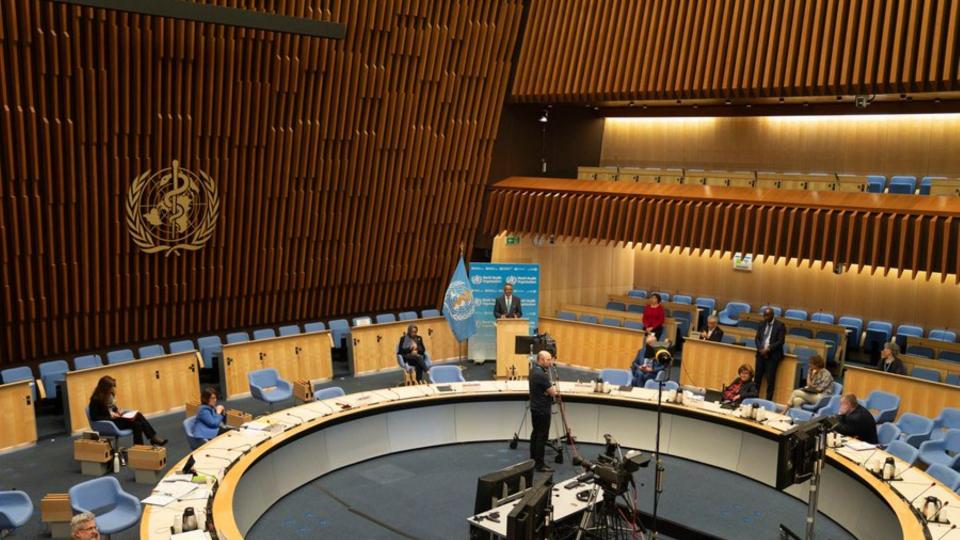ICN at World Health Assembly 74

The International Council of Nurses (ICN) has made a number of interventions at this year’s World Health Assembly (WHA), which was held virtually from the World Health Organization’s (WHO) headquarters in Geneva, Switzerland.
The WHA, which met between May 24 and June 1, is WHO’s governing body, made up of representatives from its member states.
ICN has been in official relations with WHO since its inception in 1948 and has worked collaboratively with WHO on many topics and projects of mutual interest ever since.
At this year’s Assembly, ICN intervened on four items of particular concern to nurses:
- COVID-19
- The Immunisation Agenda 2030
- The Health Workforce
- Social Determinants of Health.
The Assembly also approved WHO’s Global Strategic Directions for Nursing and Midwifery (2021-2025), which sets out policy priorities to help countries maximise the effectiveness of their nurses and midwives as they contribute to the achievement of universal health coverage and other population health goals.
Speaking after the event, ICN Chief Nurse Dr Michelle Acorn, who delivered ICN’s Health Workforce intervention highlighting the enormous shortage of nurses globally, said:
“The new Strategic Directions document addresses many of the issues that ICN has campaigned on over the past 18 months, including the ongoing shortage of nurses, the need for investment in nursing jobs, education, leadership and practice, nurses’ safety in the face of the pandemic and the vital importance of establishing government-level chief nurses in every WHO member state.”
Dr Acorn said the fact that the Strategic Directions document was adopted on the floor of the WHA in front of delegates underlines its importance to world health and the achievement of WHO’s central goals.
“This sends a clear message that nursing cannot be ignored. Much of the content of the Strategic Directions will be familiar to nurses everywhere because it echoes ICN’s priorities, which are based on what we have heard from nurses since before and during the pandemic. We are pleased to see the commitment of governments to the Strategy and ICN will work with its National Nursing Associations and Nursing Now groups to monitor and track progress in a regular and transparent manner.”
ICN Senior Policy Advisor Erica Burton attended the Assembly with a virtual delegation of 50 nurses and nursing students from 45 countries. Ms Burton said:
“Despite some very obvious disadvantages, having the delegation meet virtually, and not requiring travel to Geneva, allowed several delegates to participate in this important global event for the first time. Our delegation greatly contributed to making sure that the nursing voice was heard at the World Health Assembly, and that the discussions and decisions that took place in this forum are fed back into national nursing policies.”
ICN Nursing and Health Policy Advisor Hoi Shan Fokeladeh delivered the intervention on Social Determinants of Health. She said the pandemic has worsened social, gender and health inequities, and highlighted the need to address the social determinants of health as an integral part of the response to COVID-19.
Ms Fokeladeh said: “We are extremely concerned about the persistent and pervasive inequity that exists in societies and health systems, and we strongly back the adoption of the resolution. The pandemic requires countries to make a substantive commitment to addressing the social determinants of health. Nurses have the knowledge and skills to work at all levels, which puts them in a powerful position to make a difference. ICN calls on governments to make meaningful, effective and enduring policy changes to address the social determinants of health so that everyone has the same opportunities to be healthy, no matter who they are, where they are or what they do.”
Download the communique here